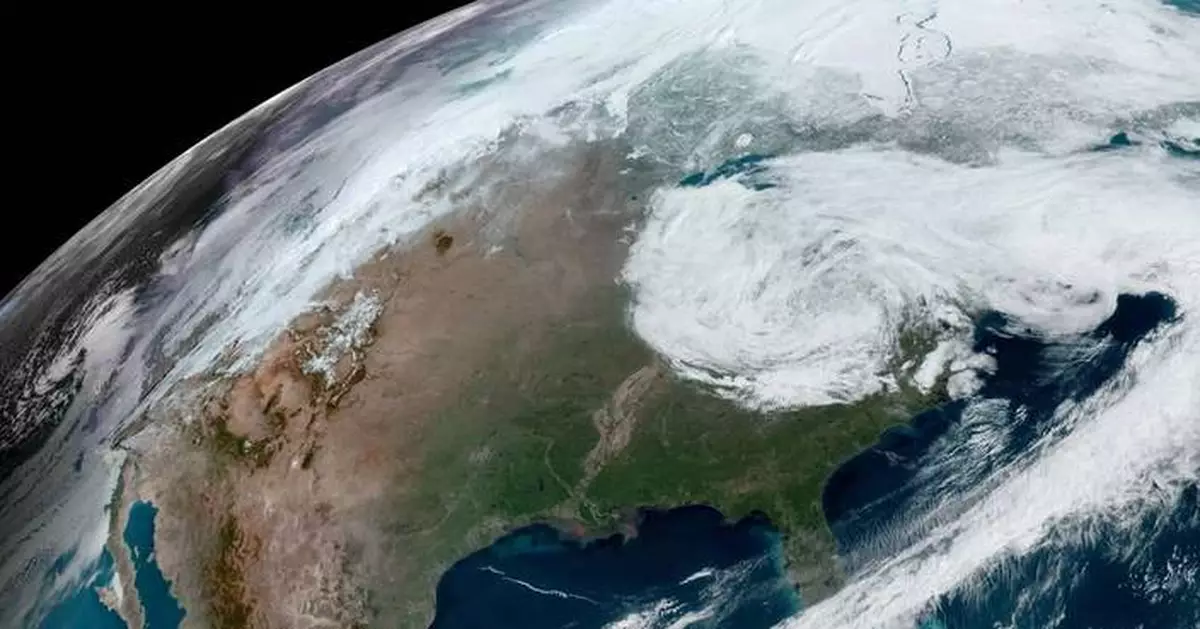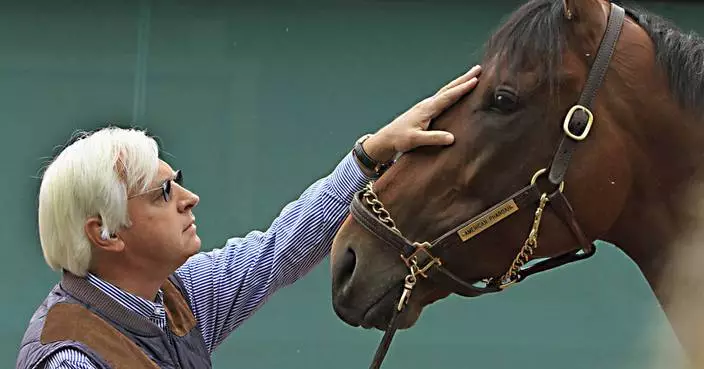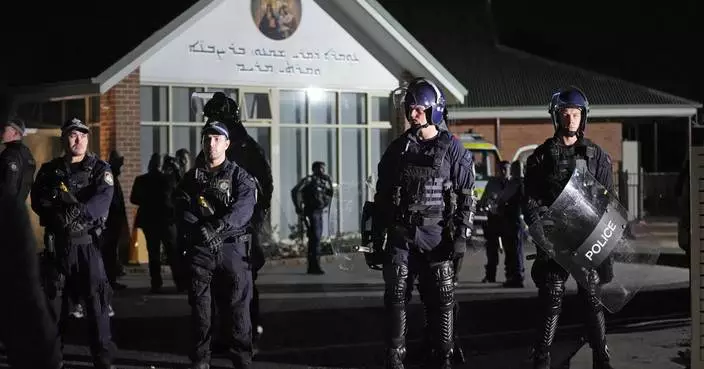If you’re in Vermont, Maine and Canada, you’re in luck. But for the rest of the path of Monday’s total solar eclipse, it could be dicey weather-wise.
Clouds are forecast for much of the eclipse route through the U.S. with some possible patches of clear skies in some spots, according to the latest forecast from the National Weather Service.
Northern New England into Canada is still the best bet to witness the eclipse, when the moon blocks out the sun for a few minutes and day turns into night.
Texas is likely to have the heaviest cloud cover. More concerning, the weather service is forecasting severe weather — tornadoes and hail — about the time of the eclipse for parts of Texas, Oklahoma, Arkansas and Louisiana.
The forecast for the eclipse path has been fairly consistent for the past 10 days, said David Roth, a meteorologist with the weather service.
“Things aren't moving that fast,” he said Sunday.
The path of total darkness stretches from Mexico and Texas through Maine and parts of Canada.
At the Great Lakes Science Center in Cleveland on Sunday, weather service meteorologist Alexa Maines tried to reassure visitors that all was not lost. A warm front was due to bring in clouds Monday morning, but they could clear out by eclipse time. “Cloud cover is one of the trickiest things to forecast,” she said.
Eclipse weather expert Jay Anderson also thinks the eclipse could be visible from Dallas to Columbus through thin, high clouds. “Not the best conditions but tolerable,” Anderson, a retired Canadian meteorologist, said via email.
“South of Dallas, there is a lot of low cloud that will disappoint a lot of eclipse enthusiasts,” he said.
You can still watch the total solar eclipse online.
Associated Press journalists will also bring live coverage of the eclipse from across the path, starting at 10 a.m. EDT with views from Mazatlán, Mexico, and other locations.
NASA will stream telescope views of the sun and on NASA TV starting at 1 p.m. EDT.
The Exploratorium museum, Time and Date and Slooh will also broadcast eclipse day views.
AP reporter Adithi Ramakrishnan contributed to this report.
The Associated Press Health and Science Department receives support from the Howard Hughes Medical Institute’s Science and Educational Media Group. The AP is solely responsible for all content.
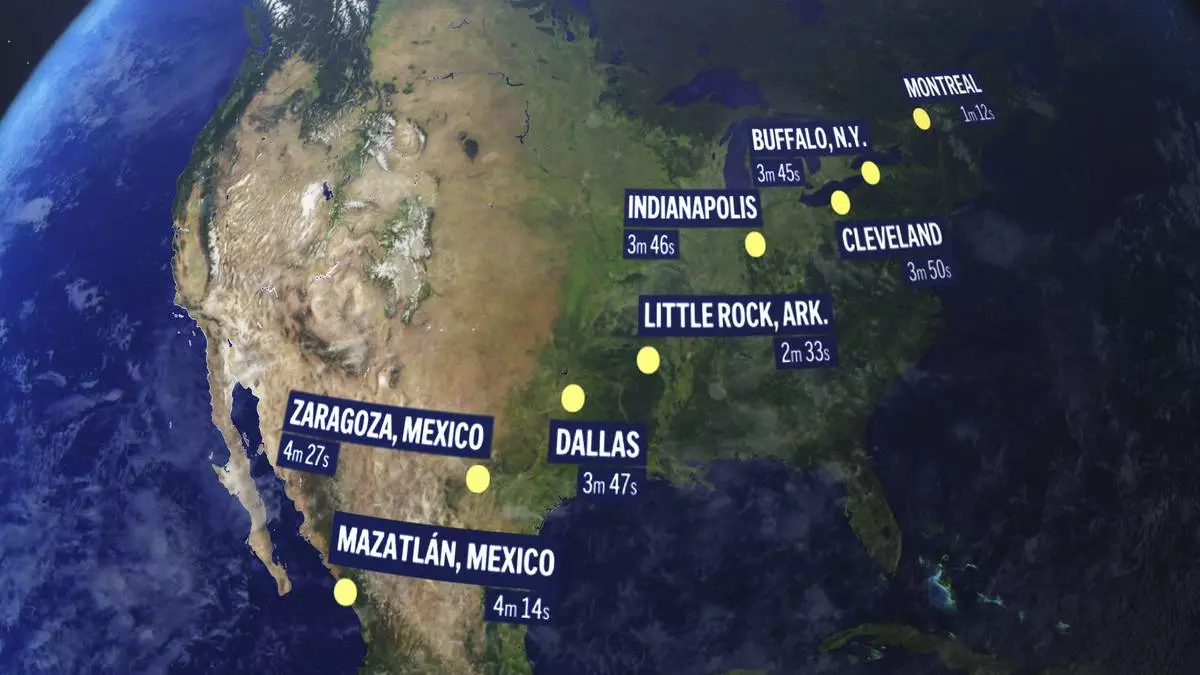
FILE - A total solar eclipse April 8 will enter over Mexico's Pacific coast, dash up through Texas and Oklahoma, crisscross the Midwest, Mid-Atlantic and New England, before exiting over eastern Canada into the Atlantic. (AP Photo, File)
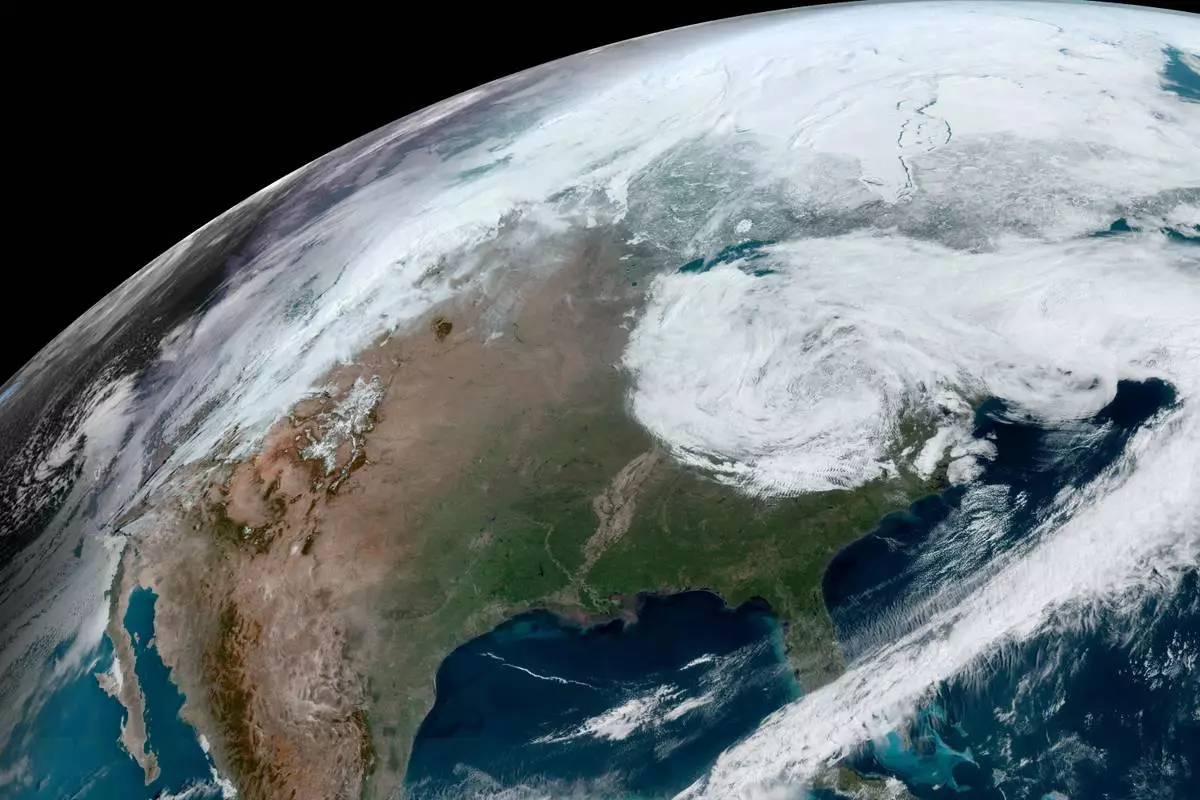
This satellite image provided by NOAA shows clouds over North America on Thursday, April 4, 2024. (NOAA via AP)
CHARLOTTE, N.C. (AP) — United Methodist delegates are heading into the homestretch of their first legislative gathering in five years — one that appears on track to make historic changes in lifting their church's longstanding bans on same-sex marriage and the ordination of LGBTQ clergy.
After a day off on Sunday, delegates to the General Conference of the United Methodist Church resumed their work Monday and will be meeting all this week before wrapping up their 11-day session on Friday
They've already begun making historic changes: On Thursday, delegates overwhelmingly endorsed a policy shift that would restructure the worldwide denomination into regional conferences and give the U.S. region, for the first time, the same right as international bodies to modify church rules to fit local situations.
That measure — subject to local ratification votes — is seen as a way the U.S. churches could have LGBTQ ordination and same-sex marriage while the more conservative overseas areas, particularly the large and fast-growing churches of Africa, could maintain those bans.
But whether that measure maintains church unity remains to be seen. The General Conference comes as the American portion of the United Methodist Church, long the nation's third-largest denomination, has shrunk considerably. One-quarter of its U.S. churches left between 2019 and 2023 amid conservative dismay over the church's failure to enforce its LGBTQ bans amid widespread defiance.
A proposal to overturn those bans is headed to the delegates this week, and progressives are optimistic that they have the votes to realize their long-held dream.
“It will say to the world about us that we really stand behind our statement that we are a church of open hearts, open minds, and open doors,” said Tracy Merrick, a delegate and member of First United Methodist Church of Pittsburgh, which has committed to ministry with LGBTQ people.
The denomination has debated homosexuality for more than half a century. Its Book of Discipline bans “self-avowed practicing homosexuals” from the clergy and forbids clergy from presiding at same-sex marriages. It also forbids church funding of any advocacy for the “acceptance of homosexuality.”
The delegates will also vote on a new set of Social Principles — a wholesale revision of an existing set of non-binding statements — which received a committee approval last week. The new version omits the previous version's declaration that homosexuality is “incompatible with Christian teaching." And it defines marriage as a sacred covenant between “two people of faith,” without specifying gender.
Such changes could portend a further fragmentation of the international church. Delegates last week approved the departure of a small but notable part of the body — about 30 churches in Russia and other former Soviet countries, where conservative views on LGBTQ issues are strong.
Some are proposing that African and other churches be given the same chance that U.S. churches recently had to disaffiliate under favorable terms.
Opponents say they already have mechanisms to depart, as some have recently done, but proponents say existing rules are burdensome.
Jerry Kulah of the advocacy group Africa Initiative said that while it will be up to individual conferences in Africa to decide whether to stay or leave the denomination, he believes it's time to leave.
“We cannot remain in this marriage,” he said. “We can’t be one church preaching different gospels.”
A large majority of African bishops, while affirming their opposition to LGBTQ ordination or marriage, have said in a joint statement they are committed to remaining in the United Methodist Church.
The denomination had until recently been the third largest in the United States, present in almost every county. But its 5.4 million U.S. membership in 2022 is expected to drop once the 2023 departures are factored in.
The denomination also counts 4.6 million members in other countries, mainly in Africa, though earlier estimates have been higher.
Conservative advocacy groups say U.S. churches that didn't meet the 2023 deadline should have the option of disaffiliating, too — along with the more than 7,000 that have already done so.
The denomination also will be debating policy stances regarding fossil fuels and other issues as well as voting on major budget cuts to denominational programs, reflective of losing thousands of congregations.
The Rev. Tracy Cox, lead pastor of First United Methodist Church in Pittsburgh, said she’s cautiously hopeful for changes to the rules on ordination and marriage. The congregation, which has long been LGBTQ-affirming, held a commissioning service on April 14 for those attending the General Conference.
“If you are called by God to be an ordained elder or deacon, no church, no institution should step in that way,” Cox said. “And as far as marriage goes, when somebody falls in love with someone, we need to be able to help them to raise a family or to be a family in the community where they’re going to serve.”
Associated Press religion coverage receives support through the AP’s collaboration with The Conversation US, with funding from Lilly Endowment Inc. The AP is solely responsible for this content.
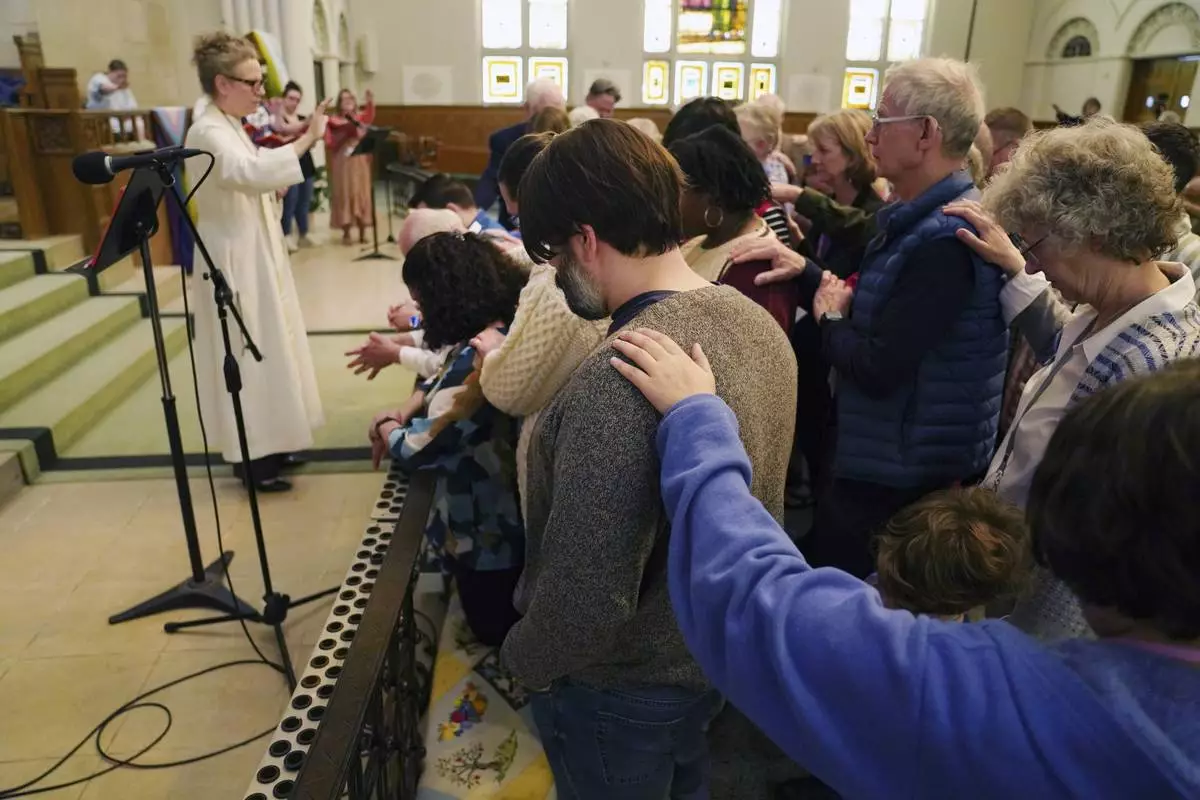
The Rev. Tracy Cox of First United Methodist Church, left, and members of her congregation pray for Tracy Merrick, a delegate representing Western Pennsylvania at the United Methodist General Conference, as well as The Rev. Anais Hussian and Joshua Popson, Sunday, April 14, 2024, in Pittsburgh. Hussian is a reserve delegate at the General Conference and Popson is advocating for LGBTQ inclusion with the Love Your Neighbor Coalition. The 11-day conference is the denomination's first legislative gathering since a special session in 2019. (AP Photo/Jessie Wardarski)
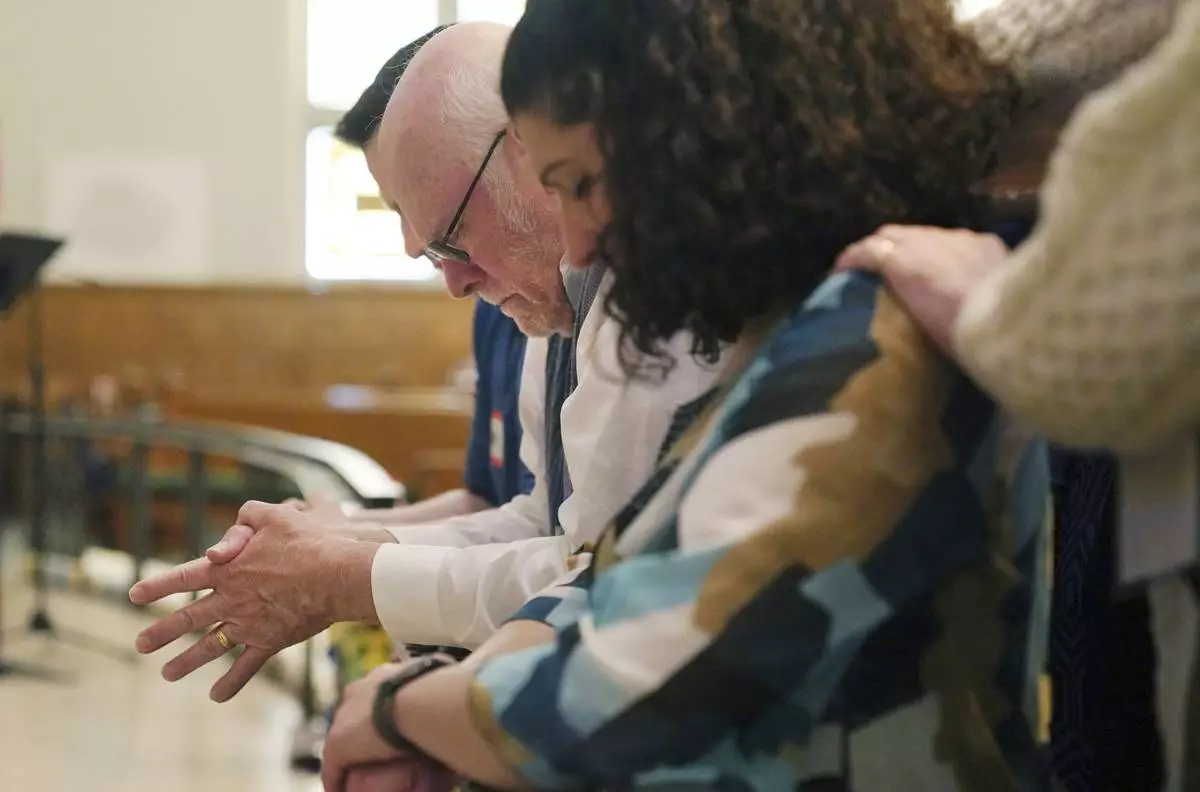
First United Methodist Church congregants pray for members attending the United Methodist General Conference, including Tracy Merrick, left, a delegate representing Western Pennsylvania, The Rev. Anais Hussian, a reserve delegate, and Joshua Popson, who is advocating for LGBTQ inclusion with the Love Your Neighbor Coalition, Sunday, April 14, 2024, in Pittsburgh. The 11-day conference is the denomination's first legislative gathering since a special session in 2019. (AP Photo/Jessie Wardarski)




